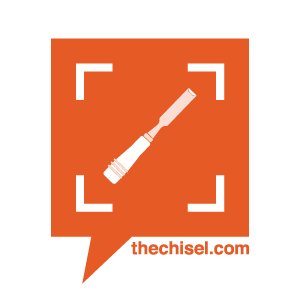We wanted to share this piece from the Essential Partners’ blog written by NCDD member Parisa Parsa, on making difficult people seemingly disappear. In the article, she talks about how each of us can be difficult people under certain circumstances, but how this can be minimized by well-designed process where folks speak their truth anchored by their beliefs. She also elaborates how often we miss the nuance of each other’s understanding and ultimately humanity, when we generalize that someone is “difficult”. You can read the Essential Partner’s article below or find the original version here.
Difficult People
 Earlier this year, a dialogue participant helped us with an amazing discovery:
Earlier this year, a dialogue participant helped us with an amazing discovery:
We can make difficult people disappear.
Let me explain.
Our climate of public discourse is toxic, inundating us with the message that folks who believe differently must be pitied or feared. They are difficult. Intractable. Irrational. Naive. These stereotypes have different shapes when viewed from the left or the right, but the effect is just as stifling. And yet, many of us have real people in our lives — family members, neighbors, co-workers — who believe, vote, and live differently than we do.
Recently we included a dialogue about guns in schools in one of our trainings. Participants held widely divergent views on the subject, and the dialogue circles were composed of individuals who held a range of beliefs. Strong gun rights activists and fervent gun control advocates engaged in deep conversations about their relationship with firearms. As we debriefed, people were amazed that they found so many points of identification with “the others” in the room, so much understanding and shared experience.
Finally, someone said: “This was all fine, but where were all the difficult people?”
This landed for me on two levels:
First, of course, when we are feeling fearful, mistrustful, threatened, and under siege, any of us — all of us — are capable of being difficult people. The careful work of preparation we do with participants before dialogues and to shape agreements and structure for conversation is designed to help speak their deepest truths. Which turns out to be much more interesting than our well-rehearsed diatribes. When we speak and listen from where our beliefs and values are anchored, we let go of the defensive/offensive behavior of difficult people. We become, simply, people.
On yet another level, that question, “where were all the difficult people?” also spoke to another toxic factor in our public life. We have become accustomed to equating disagreeing with being difficult to such an extent that it is hard to believe we really had a conversation across difference if we didn’t cause or experience offensive behavior. We have stopped trusting our own experience of our neighbors as nuanced, full people, and instead are on alert for the jerks. Yet it turns out that the handful of really intractable people on any side of an issue are just that: a minority. They get a lot of airtime that distances the rest of us from each other out of fear and anxiety that everyone who believes differently is at the far extreme. This robs us of the experience of knowing each other all across the middle of the continuum. And it tells us that our experience of genuine compassion, of real stories and humanity in the people right in front of us somehow can’t be trusted.
The work of careful engagement in structured conversation helps us reclaim our own experience. It gives us an opportunity to see ourselves and others more clearly, in deeper, richer light. We give up nothing but our outdated assumptions and stereotypes. And we gain a window into a more abundant truth: that we can be both utterly committed to each other’s humanity and in disagreement about one – or many – issues.
After we can see each other as people, we also can claim and name how we are passionate people who want to stand up for what we believe is right. We become compassionate people who need one another to live out our values and navigate our personal and community struggles. We become committed people working toward solutions to our community’s and our nation’s problems.
When we make difficult people disappear, we set our sights on the new horizons of possibility in our connection, in our compassion and in our collaboration.
You can find the original version of this Essential Partner’s blog piece at www.whatisessential.org/blog/difficult-people.









